
About Us
What is the Youth On the Land (YOLO) Community?
The YOLO Community (Youth On the Land Opportunities) is a network of over 300 people across Canada supporting on-the-land/water opportunities for Indigenous youth. Members include those working in stewardship departments, Indigenous Guardian programs, health centres, schools, child/family services, non-profits, and more.
Together, we share resources, stories, challenges, and encouragement, strengthening each other in the shared work of supporting the next generation of leaders.
The YOLO Community is currently coordinated by Nature United, a conservation organization with a long-standing commitment to Indigenous-led stewardship and youth on-the-land opportunities in partnership with Indigenous communities. As the Network grows, our vision is for it to be guided by Indigenous leadership, within an existing or emerging organization.
We hope this website fosters deep connection, collaboration, and support across program! Welcome to the conversation!
Mission
Vision
Philosophy
Our Ways of Working
Youth Centred
Indigenous Leadership and Protocol
Honouring Local Vision
Regional and Cultural Equity
Collaboration, Shared Learning, and Capacity Building
Responsiveness and Adaptability
This YOLO Community (Youth on the Land Opportunities) website was co-created with guidance with an advisory group made up of 10 Indigenous and non-Indigenous leaders from organizations and Nations across BC, NWT, and MB.
Over the course of a year, they met regularly to help shape the content and design of this site to make it as useful as possible for others growing their own programs.
As we move into the next phase of the YOLO Community Network, we’re looking to grow our advisory group and have representation from all regions across Canada. If you’re passionate about land-based learning and supporting Indigenous youth, we’d love to hear from you.
Scroll down to read more about our current members and to learn more about joining the advisory.
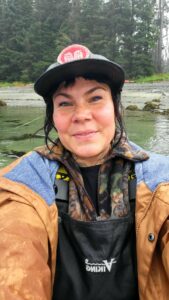
Sandlanee Gid Raven Ann Potschka
Haida Gwaii
Biography
Sandlanee Gid Raven Ann Potschka is from the Gawa Git’ans, Massett Inlet Eagle Clan, Haida Gwaii. She’s a proud mom of twins and has spent over 25 years supporting youth, families, and communities through land-based learning and Indigenous wellness. Reconnecting with her Haida roots helped her heal from childhood and intergenerational trauma, and she now shares that journey to help others do the same. Guided by Elders and grounded in Yahguudang (respect), she weaves together culture, ceremony, and mental health work to create spaces for healing, belonging, and connection to the land.
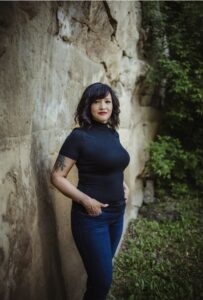
Lindsay Yasinski
PhD Student
University of British Columbia
Vancouver, BC
Biography
Tansi, my name is Lindsay Yasinski, and I am Nêhiyaw (Cree), Red River Métis, and of Eastern European descent. I was born and raised in my ancestral territory in Peace River, Alberta, where I acknowledge the Cree, Dene, Beaver, and Métis peoples. I have maternal kinship ties to the Lubicon Lake First Nation and Woodland Cree First Nation, both located in Treaty 8 territory. I am a proud member of the Métis Nation of Alberta, and am directly descended from the Lambert, Lizotte, Flett and Bird families of the Red River Métis. I have worked in the Canadian education system for 12 years as a teacher, educational assistant and Indigenous Support Worker. I completed a Bachelor of Education from the University of Calgary, and a Master of Education in Indigenous Education from the University of Columbia. Currently, I am in my first year of a PhD in Educational Studies at UBC. I teach urban Indigenous youth and am passionate about creating an educational space where they can safely explore their identities. My research focuses on how urban Indigenous youth connect with their Indigenous identities within a school setting. The work of Indigenous education is woven into my heart and my being. As an educator and researcher, my goal is to improve the Canadian education system and break down barriers for Indigenous students. I carry the teachings of my Nêhiyaw and Métis ancestors with me—as a mother, educator, student, and leader—grounded in love, care, and the kinship responsibilities that shape how I move through the world. I approach this important work with authenticity, humility, and love for my colleagues, teachers, and students.
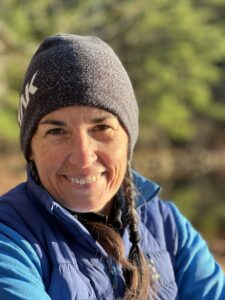
Liz Halina
Consultant, Instructional Design & Indigenous Education
Gatineau, QC
Biography
Liz Halina, a member of Sagkeeng First Nation, currently based in Gatineau, Quebec, has 15 years of classroom experience and an additional 10 years working directly with educators to enrich curricula with Indigenous perspectives. She is deeply committed to advancing Indigenous Land-Based Education and supporting teachers in creating inclusive, culturally responsive learning environments.
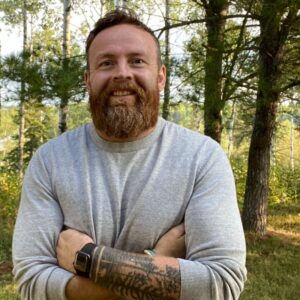
Shea Henderson
YOLO Community Network Coordinator
YOLO Community
Churchill, MB
Biography
My name is Shea Henderson and I am an educator, program designer, and community collaborator with nearly 15 years of experience working across Northern and remote regions in Ontario and Manitoba. Originally from Lion’s Head, a small community in Southern Ontario, I now live on Treaty 5 territory in Churchill, MB, and work with communities across the province situated on Treaties 1, 2, 3, 4, 5, 6, and 10. Growing up surrounded by nature, I developed a deep respect for the environment and an early understanding of how land and experience shapes identity, well-being, and growth.
My work spans formal education, community development, and land-based programming. I’ve had the privilege of supporting learners across diverse settings, from classroom teaching and community-engaged learning to co-developing culturally grounded programs and leading experiential education initiatives. Collaborating with teachers, youth, Elders, and Knowledge Keepers, I focus on co-creating learning experiences rooted in respect, relevance, reciprocity, responsibility, and relationality.
What grounds my practice is a commitment to learning that is immersive, reciprocal, and guided by lived experience. I believe deeply in the power of education that moves beyond the walls of a classroom – education that is felt, witnessed, and lived. Lead with experience. Lead with good relationships. Lead with immersion. When we do this, the learning becomes transformative – for students, for educators, and for the communities we serve.
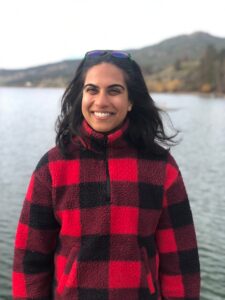
Zahra Remtulla
Indigenous Youth On-the-Land Support Lead
Nature United
Vancouver, BC
Biography
Zahra lives on xʷməθkʷəy̓əm (Musqueam), Sḵwx̱wú7mesh (Squamish), and səlilwətaɬ (Tsleil-Waututh) territory (Vancouver, BC) and started at Nature United in 2018. She supports Indigenous communities across Canada in running strong and resilient on-the-land/water programs for Indigenous youth, who will be the future stewards of their communities, cultures and territories. This work involves facilitation support, developing tools and resources, and facilitating webinars to support networking between partners. Zahra is currently supporting the YOLO Community in a coordinating role and is excited about how the governance structure of the YOLO Community may evolve – she hopes to one day see this work led by an Indigenous institution and directed by a robust advisory group. Before working for Nature United, Zahra worked in Indigenous education with Vancouver Island University in Snuneymuxw territory (Nanaimo, BC) and in public health in Vancouver’s Downtown Eastside. She is a K-12 teacher by training and currently studying to become a Registered Clinical Counsellor.
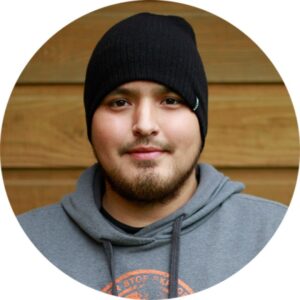
Vern Brown
Outdoor Coordinaor
Kitasoo/Xai'xais Resource Stewardship
Klemtu, BC
Biography
Vern Brown is Kitasoo/Xai’xais and has been the Supporting Emerging Aboriginal Stewards (SEAS) Summer Internship Coordinator for the community since 2016. Vern’s top goals as Coordinator are to expose his interns to as much of their territory as possible, inspire curiosity and show them that they have opportunities once they finish school. “Youth in our community represent the future stewards of our territory,” Vern says. “It is our Nation’s vision to reconnect young people to the Earth and their culture. To teach them where they come from and who they can be.”
Vern also does lots of work with the Kitasoo/Xai’xais Resource Stewardship Department, including creek walking, forestry work, and other monitoring and science work. He has expertise in bear research, mapping, drones, and much more!
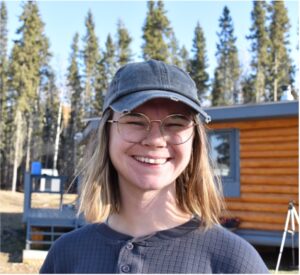
Steph Woodworth
Project Director
Northern Youth Leadership
Yellowknife, NT
Biography
Steph Woodworth (they/them) is a PhD Candidate in the Department of Geography, Environment and Geomatics at the University of Ottawa, co-supervised by Dr. Sonia Wesche and Dr. Andrew Spring, and is the Project Director at Northern Youth Leadership. For their doctoral research, Steph explored on-the-land camps in the Northwest Territories, which educate and engage northern youth. Specifically, they used photovoice during on-the-land camps with northern youth to capture their experiences of land-based education and their concerns of, and priorities for, changes happening in their communities. As Project Director for Northern Youth Leadership, their vision is to empower and inspire a generation of courageous, young Northern leaders. Northern Youth Leadership programming has two main components (1) on-the-land camps for northern youth (ages 11-17) and (2) a leadership development program, an employment mentorship program for youth aged 14-25. In their PhD research and role as Project Director, Steph works to foster opportunities for youth to connect with the Land, build self-confidence, improve mental health and wellbeing, participate in safe spaces, and strengthen peer networks. Overall, Steph is deeply passionate about empowering and educating youth to be land-based leaders.
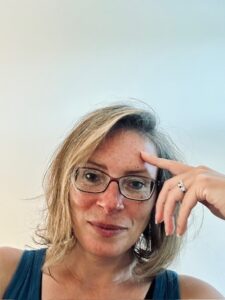
Heather Burke
Manager, Indigenous Initiatives
Vancouver Island University
Nanaimo, BC
Biography
Heather Burke, BA, MA is Métis with ancestral ties to the former Red River Settlement, a historical Métis community. She has Indigenous and European ancestry on her father’s side and English and American ancestry on her mother’s side. Heather is a Learning Facilitator in the Office of Indigenous Education and Engagement at VIU in partnership with the EleV program. Heather works to centre and amplify Indigenous voice by sharing the promising practices and teachings we have received from Indigenous learners, communities, families, the VIU community, and other learning partners as a way to be accountable to these groups and honour the responsibility to be transparent and authentic in our work together.
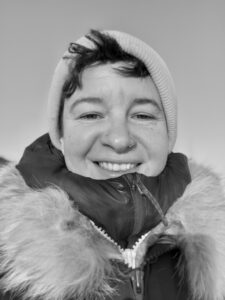
Wren Nicolardi
Director/Co-founder
Rivers to Ridges
Whitehorse, YK
Biography
As an education leader, curriculum designer and project manager Wren can be found on the land with young people and project partners, as well as in classrooms and boardrooms. Wren was raised between the Niagara Escarpment and the shores of Lake Ontario on the traditional territories of the Haudenosaunee Anishinabewaki ᐊᓂᔑᓈᐯᐗᑭ, Attiwonderonk, Mississauga, and Mississauga of the New Credit, and they have over 15 years experience working with children, youth, families and community partners on the land and behind the scenes in education design and delivery. Wren has always felt called to work outdoors with young people. Rivers to Ridges was born out of a desire to create space for young people to feel curious about and connected to the land around them. Wren uses their BEd and organizational leadership experiences to increase access to land-based learning for young people, and to decolonize educational systems through learning design. Wren feels most alive when working in relationship with youth as they develop their sense of self in connection to place/land; working with inspiring teams to create meaningful learning experiences; learning from local land stewards; supporting young people in taking risks; and celebrating bird language and song as a doorway to deeper awareness.

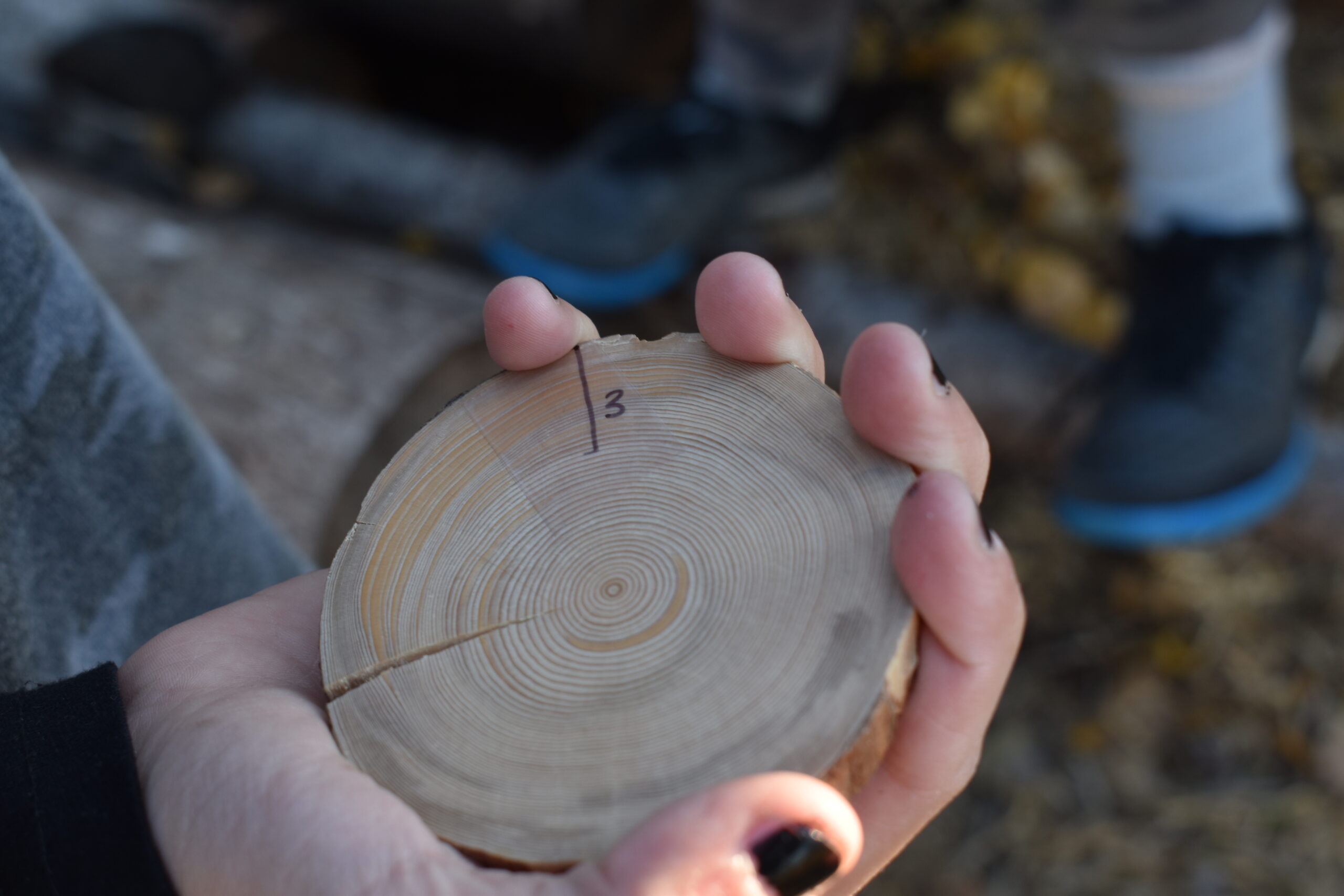
Growing the YOLO Community Advisory Group
To date, the YOLO Community Advisory Group has focused on shaping this website and laying a strong foundation for the network. As we grow, we’re excited to expand the role of the advisory group and build a stronger governance structure that can help guide the future of the YOLO Community more broadly.
Our vision is to strengthen support for Indigenous youth to connect with the land and water through programming across the country. To do this, we’re looking to welcome new advisory members from all regions of Canada.
If you’re interested in being part of this work, please reach out to us at youthontheland@gmail.com or click the button below to fill out the Expression of Interest Form. We’d love to connect!